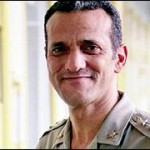by Jaja Atenra. Originally posted at Examiner.com
There is a famous Haitian proverb that says, Dye mon, gen mon, “beyond the mountains, more mountains.” This proverb sums up Haiti’s 200 year struggle for independence. The latest mountain facing Haitian people’ struggle for independence is there effort to implement democracy in Haiti which has been undermined by the players (U.S. foreign policymakers), pimps (Haitian government officials), and hustlers (Haitian elite families).
A “player” is defined as someone who is skilled at manipulating (“playing”) others by pretending to care about them, when in reality they are only interested in physical gratification or monetary gain. U.S. foreign policymakers have acted as “players” when devising U.S. foreign policy in Haiti. U.S. foreign policy has for decades been influential in defining the economic and political system in Haiti.
Unfortunately, the interests of the masses of Haitian people have all too often been sacrificed between promoting U.S. corporate interest and providing aid for development. After decades of U.S. development aid, Haiti has become a low-wage, export-friendly economy that provides profitable business opportunities for U.S. corporations and investors. Haiti has become one of leaders in the world in the assembly of goods for the U.S. However, the benefit to the masses of Haiti has been minimal, as Haiti has 80% of its people living below the poverty line as of January 2009. The average daily income for a Haitian worker is about $2 a day, which on an annual scale would be about $730 annually. U.S. foreign policymakers are working in the interest of U.S. corporations and investors by “playing” the Haitian people.
A “pimp” is defined as one who brokers the sexual favors of women and/or men for profits. In this instance, Haitian politicians and military officials use the inhumane conditions of the Haitian masses to solicit economic aid from the international community and approve any corporate agreements between the foreign corporations and the Haitian elite. The Haitian people see very little of the millions of dollars in aid, as the government officials quickly divides the spoils among themselves and/or uses the aid as a political tool to sway the masses.
In addition, the Haitian military ensures that the status quo remains as it will intervene in Haiti’s democratic efforts as it sees fit. Probably the most widely known intervention was the ousting of President Jean Bertrand Aristide. President Aristide was the first democratically elected official in Haiti. He was elected by the masses of Haitian people who wanted change to the status quo.
 Aristide began his tenured with a number of radical reforms that proposed a new tax on elites, revamping government ministries, and the removal of some top military officials. However, less than a year after Aristide was elected into office, Aristide was deposed by a violent military-led coup d’état. The new military dictatorship, led by General Raoul Cèdres, waged a violent crackdown on political opposition that killed several thousand people and sent thousands fleeing into the Dominican Republic and to the shores of the United States. Thus, the Haitian government (i.e. politicians and military officials) are “pimping” the Haitian masses.
Aristide began his tenured with a number of radical reforms that proposed a new tax on elites, revamping government ministries, and the removal of some top military officials. However, less than a year after Aristide was elected into office, Aristide was deposed by a violent military-led coup d’état. The new military dictatorship, led by General Raoul Cèdres, waged a violent crackdown on political opposition that killed several thousand people and sent thousands fleeing into the Dominican Republic and to the shores of the United States. Thus, the Haitian government (i.e. politicians and military officials) are “pimping” the Haitian masses.
A “hustler” is defined as a person who employs fraudulent or unscrupulous methods to obtain money. It is quite easy to see who the hustlers are in Haiti. The Haitian elite families will use its wealth and power to ensure that the profits gain from their fraudulent and/or unscrupulous business practices to crush any attempts by the masses of Haitian people to rise up.
Most of the Haitian elite are descendants of Europeans who in the mid- to late 1800s came to Haiti. They control all the major sectors of the economy, from banking and telecommunications to apparel factories and food. Some of these elite families, such as Mevs, Bigio, Brandt, Madsen and Acra, have control the economy since the turn of the 20th century. They control and own all of Haiti’s vital commodities, such as, petroleum, telephones, internet, sugar, flour, plastics, soap, cooking oil, cement, steel, iron. They also own most of the country’s warehouses.
The Haitian elite families have no interest in seeing democracy work in Haiti, as it will undermine their profits. The Haitian elite families are the “hustlers” of Haiti and will do whatever it takes to continue the status quo.
Democracy in Haiti will not gain any significant ground in Haiti until the status quo is changed. The players, pimps, and hustlers must be seen as the “mountains” that prevent democracy from working in Haiti. Until the status quo is change, Haiti will remain the same.
